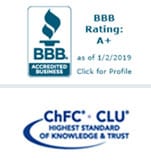
Recently, the Internal Revenue Service, state tax agencies and the nation’s tax industry – working together as the Security Summit – kicked-off the 8th National Tax Security Awareness Week with tips for taxpayers to avoid scams and protect sensitive personal information.
“As the holidays approach, we are entering a period where taxpayers need to be extra careful protecting their sensitive financial and personal information,” said IRS Commissioner Danny Werfel. “Identity thieves are looking for ways to play the Grinch and steal taxpayer information that can help them steal identities and file fraudulent tax returns. The IRS and the Security Summit continue to work to strengthen our internal systems, but taxpayers and tax professionals form a critical first line of defense against identity thieves by securing their tax and financial information.”
The Security Summit reminds everyone to stay safe during the holiday season with the following tips that can help protect themselves while online and in other settings:
- Shop at sites where the web address begins with “https” – the “s” is for secure – and look for the padlock icon in the browser window.
- Don’t shop on unsecured public Wi-Fi in places like a mall or restaurant.
- Keep security software for computers, tablets and mobile phones updated.
- Protect the devices of family members, including young children, older adults as well as less technologically savvy users.
- Make sure anti-virus software for computers has a feature to stop malware, and that there is a firewall enabled that can prevent intrusions.
- Use strong and unique passwords for online accounts.
- Use multi-factor authentication whenever possible. It helps prevent thieves from easily hacking accounts.
Other tips for taxpayers
Additional safeguards for taxpayers to protect themselves from potential identity theft include:
- Use separate personal and business computers, mobile devices and email accounts.
- Do not send sensitive business information to personal email devices.
- Never connect an unknown/untrusted piece of hardware into your computer, system or network.
- Change passwords often, every three months is recommended.
- Consider using a password management application to store passwords.
- Do not reuse passwords on devices and applications that contain business information.
With holiday season approaching, the IRS reminds people to be careful of gift card scams that can involve taxes. The IRS also reminds people about advice from the Federal Trade Commission to never buy anything from online sellers that accept payment only by gift cards, money transfers through companies like Western Union, MoneyGram, or cryptocurrency. Payments made that way are nearly impossible to trace and reverse. Scammers commonly tell people to use those payment methods to pay tax bills so they can get money quickly.
Given the rise of texting scams, taxpayers can check out security recommendations for their specific mobile phone by reviewing the Federal Communications Commission’s Smartphone Security Checker. Since phones are used for shopping and even for doing taxes, remember to make sure phones and tablets are just as secure as computers.
Additional resources
The IRS encourages taxpayers to watch out for common tax-related scams. People can get the latest information on scams by following @IRSnews on X (formerly known as Twitter) as well as other official IRS social media platforms.




